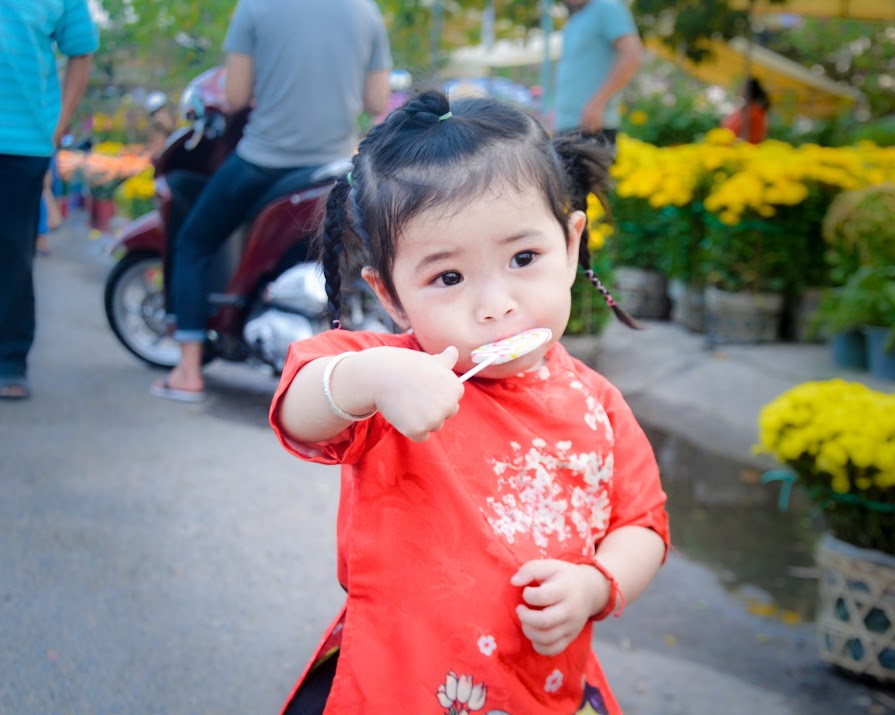
By Jennifer McShane
17th Aug 2019
17th Aug 2019
This week, WW (formerly Weight Watchers) announced the launch of a new programme in the US called Kurbo by WW, aimed at children and teenagers. Defending the backlash, they said that it is designed to address the prevalent public health problem of childhood obesity. However, health nutritionists have said that it’s in danger of putting young children at risk of developing eating disorders.
We know that childhood obesity is a major concern. In Ireland, figures say that 1 in 4 children is overweight or obese, obese children are likely to become obese adults and that parents find it difficult to recognise that their child’s weight is not healthy. But is a specifically tailored programme really the answer?
WW says yes. In the press release, WW’s Chief Scientific Officer, Gary Foster, PhD, said that the program is designed to be “part of the solution to address the prevalent public health problem of childhood obesity.” It is, they explain, based on 30 years of clinical nutrition and behaviour change research. “Kurbo by WW is uniquely designed to give kids, teens and families the tools and inspiration to adopt healthy habits.”
The free app allows teens to track what they eat and uses the Stanford University-developed “traffic light” system to rank foods as green (“go foods”), yellow (moderation advised) and red (“stop and think”). Users enter data such as height, weight and age, and they can track their physical activity. WW says research supports the “traffic light” system as a healthy way to encourage weight loss.
It also features an in-app messaging service, meditation exercises, and counselling sessions (for a fee) with a “coach.” If a family opts for this option, Kurbo pairs the child with a coach who video chats with them for 15 minutes a week.
“Dangerous”
WW are standing by their app, but some health specialists have said it could encourage young kids and teens to become so self-conscious of their diet habits, that they may be at risk of an eating disorder.
“Promoting dieting behaviours in children can lead to those same children developing eating disorders, poor self-esteem, and many other mental and physical health issues,” according to Sami Main, a wellness and nutrition coach told Refinery29. “It’s dangerous to promote dieting behaviour in children; an app like this can easily lead to kids fearing food and fearing weight gain for years to come.”
The reaction was mixed by and large but there was also considerable backlash on Twitter, where hashtag #wakeupweightwatchers trended.
“It’s a double-edged sword,” one user wrote. “A similar app helped me when I was a teen, but some won’t respond to it so positively, it all depends if it will work for you or it won’t.”
Others were less impartial.
@weightwatchers is well aware that they are more successful at weight cycling than weight loss. The idea that they are solving a problem they help to create by teaching kids to diet would be laughable if it weren’t so upsetting. #wakeupweightwatchers
— Marci Evans (@MarciRD) August 15, 2019
Children gain 20-50 pounds during puberty. @ww_us is exploiting this vulnerable time in a child’s life by telling them their body is wrong and they can fix it with their new app. Children need unconditional love and support, not diets! #wakeupweightwatchers
— Beth Rosen MS RD CDN (@GGLiving) August 15, 2019
A 3-year study on nearly 2,000 teens found that dieting is the most important predictor of new eating disorders Patton et al. (1999). Onset of adolescent eating disorders: population based cohort study over 3 years.
British Medical Journal, 318:765-768. #wakeupweightwatchers— Evelyn Tribole MS RD (@Etribole) August 15, 2019
Many also pointed out that Kurbo’s website also touts success stories from children who have done the programme, featuring before-and-after photos which they felt could have major negative and psychological long-term effects.
Suggestion that there should ever be a before and after weight change photograph of a child is horrifying. Weight gain during childhood and adolescence is intentional. If it does not happen, there is a medical problem at hand. #wakeupweightwatchers
— Anna Sweeney MS, CEDRD-S (@DietitianAnna) August 15, 2019
Maybe this is a super controversial opinion but 8-YEAR-OLDS SHOULDN’T BE TRACKING EVERYTHING THEY EAT OR SEEING THEIR BODIES AS BEFORE PICTURES.
They should be learning & exploring & growing & knowing that they’re worth the WORLD in the bodies they have. #wakeupweightwatchers
— Megan ? (@bodyposipanda_) August 15, 2019
In response, Kurbo co-founder Joanna Strober said that both the free and paid version of the Kurbo will alert families to signs of developing eating disorders, and that, based on their research, family-based approach Kurbo uses has not been shown to increase the risk of eating disorders.
However, the bottom line is that while well-intended, many feel WW want to push their brand and gain more life-long users, as opposed to fully considering children’s emotional wellbeing and their overall relationships with food, before trying to push the topic of weight gain on them.
Main photograph: Pexels























